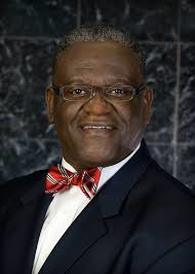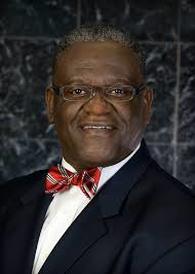Workforce Development
Scroll below to select research from the following scholars

Dr. Simone Arnold
Title: Vice President, Compliance at First Data
Research Topic: A Quantitative Descriptive-Comparative Study: The Relationship Between Emotional Intelligence and Workplace Diversity
Institution: University of Phoenix
Committee Chair: Leah P. Hollis, Ed.D.
Abstract: Despite mounting evidence of emotional intelligence on creating positive attitudes, fostering collaboration, and managing conflict, the relationship of emotional intelligence and workforce diversity in women and minorities is not widely known. The proliferation of emotionally intelligent women and minorities in the American workforce misaligns with the current insufficiency in workplace diversity in senior roles at United States (U.S.) firms in the high-tech sector. This quantitative descriptive-comparative study was conducted to examine the relationship between emotional intelligence and workplace diversity. The sample consisted of 330 White, Hispanic, Asian, and Black employees in managerial and leadership roles. Participants’ emotional intelligence responsiveness were assessed with the Emotional Quotient Inventory (EQ-i 2.0) assessment. A theoretical framework incorporated foundational theories in emotional intelligence, cultural diversity, organizational, and diversity and inclusion. Descriptive statistical analysis, inferential statistical procedures, MANOVA tests, and post hoc analyses were applied using SPSS Software® to evaluate results. Results show that EI is a predictor to workplace diversity by diverse leader employee group, ^ = 0.89, X2 (15) = 37.57, p = .00; by ethnicity ^ = 0.91, F(10, 516) = 2.37, p = .01; and by race ^ = 0.90, F(10, 516) = 2.86, p = .00. Recommendations are presented with varied approaches such as a mixed-method research study, a developmental research study with a longitudinal design, or a qualitative study that can corroborate the current study findings for women and minorities in the high-tech sector.
Click the link below to download this study.
Title: Vice President, Compliance at First Data
Research Topic: A Quantitative Descriptive-Comparative Study: The Relationship Between Emotional Intelligence and Workplace Diversity
Institution: University of Phoenix
Committee Chair: Leah P. Hollis, Ed.D.
Abstract: Despite mounting evidence of emotional intelligence on creating positive attitudes, fostering collaboration, and managing conflict, the relationship of emotional intelligence and workforce diversity in women and minorities is not widely known. The proliferation of emotionally intelligent women and minorities in the American workforce misaligns with the current insufficiency in workplace diversity in senior roles at United States (U.S.) firms in the high-tech sector. This quantitative descriptive-comparative study was conducted to examine the relationship between emotional intelligence and workplace diversity. The sample consisted of 330 White, Hispanic, Asian, and Black employees in managerial and leadership roles. Participants’ emotional intelligence responsiveness were assessed with the Emotional Quotient Inventory (EQ-i 2.0) assessment. A theoretical framework incorporated foundational theories in emotional intelligence, cultural diversity, organizational, and diversity and inclusion. Descriptive statistical analysis, inferential statistical procedures, MANOVA tests, and post hoc analyses were applied using SPSS Software® to evaluate results. Results show that EI is a predictor to workplace diversity by diverse leader employee group, ^ = 0.89, X2 (15) = 37.57, p = .00; by ethnicity ^ = 0.91, F(10, 516) = 2.37, p = .01; and by race ^ = 0.90, F(10, 516) = 2.86, p = .00. Recommendations are presented with varied approaches such as a mixed-method research study, a developmental research study with a longitudinal design, or a qualitative study that can corroborate the current study findings for women and minorities in the high-tech sector.
Click the link below to download this study.
| simone_dienna_arnold__dissertation.pdf | |
| File Size: | 2472 kb |
| File Type: | |

Dr. Terence Jackson
Title: Speaker/Innovator
Research Topic: Employer Perceptions of Technology Graduates from Historically Black Colleges and Universities: A Q Methodological Study
Institution: Walden University
Committee Chair: Dr. Julie Ducharme, Doctor of Business Administration Faculty
Abstract: Technology jobs are projected to double over the next five years. Historically Black
Colleges and Universities (HBCU) technology graduates entering the workforce seek the
same career opportunities as graduates from non HBCUs; however, such equity remains
clearly inadequate within the United States. This research investigated the lack of employment opportunities for technology graduates from Historically Black Colleges and Universities. A mixed-model approach, Q methodology, identified employer perceptions. Q methodology has a proven history of illuminating agreement and differences among individual and group perceptions. Six employers participated in this study. The research questions were developed to expose and identify employer perceptions. Correlation and factor analysis were used to analyze the data. The results of this study show participants in the study perceived HBCU technology graduates as intelligent, possessing the necessary skills to succeed in the workplace, and being recipients of high-quality educations from high-quality institutions. However, the results also indicate that HBCU technology graduates do not have the same employment opportunities as their peers at non HBCUs. By exposing and identifying employer perceptions of HBCU technology graduates, this study increases the understanding of employer perceptions of HBCU technology graduates. Using the systems thinking approach, HBCUs and employers can collaborate to develop a recruiting process targeted at improving employment opportunities for these technology graduates. This research provides insight into how employers perceive HBCU technology graduates. HBCU career development centers can develop strategies to attract more employers to recruit at their campuses.
Click the link below to download this study.
Title: Speaker/Innovator
Research Topic: Employer Perceptions of Technology Graduates from Historically Black Colleges and Universities: A Q Methodological Study
Institution: Walden University
Committee Chair: Dr. Julie Ducharme, Doctor of Business Administration Faculty
Abstract: Technology jobs are projected to double over the next five years. Historically Black
Colleges and Universities (HBCU) technology graduates entering the workforce seek the
same career opportunities as graduates from non HBCUs; however, such equity remains
clearly inadequate within the United States. This research investigated the lack of employment opportunities for technology graduates from Historically Black Colleges and Universities. A mixed-model approach, Q methodology, identified employer perceptions. Q methodology has a proven history of illuminating agreement and differences among individual and group perceptions. Six employers participated in this study. The research questions were developed to expose and identify employer perceptions. Correlation and factor analysis were used to analyze the data. The results of this study show participants in the study perceived HBCU technology graduates as intelligent, possessing the necessary skills to succeed in the workplace, and being recipients of high-quality educations from high-quality institutions. However, the results also indicate that HBCU technology graduates do not have the same employment opportunities as their peers at non HBCUs. By exposing and identifying employer perceptions of HBCU technology graduates, this study increases the understanding of employer perceptions of HBCU technology graduates. Using the systems thinking approach, HBCUs and employers can collaborate to develop a recruiting process targeted at improving employment opportunities for these technology graduates. This research provides insight into how employers perceive HBCU technology graduates. HBCU career development centers can develop strategies to attract more employers to recruit at their campuses.
Click the link below to download this study.
| tdj_dissertation.pdf | |
| File Size: | 1117 kb |
| File Type: | |

Dr. Rodney Milligan
Title: General Manager
Research Title: Conflict and Diversity Associated with Four Generations in the Workforce
Institution: Walden University
Committee Chair: Dr. Rocky Dwyer
Abstract: Four generations of workers share the workforce for the first time in history. Business leaders’ failure to address generational conflict may lead to low productivity, high turnover rates, employee frustration, and reduced profits. The purpose of this phenomenological study was to explore the experiences of business leaders, managers, and supervisors in leading a multi generational workforce within their companies. The conceptual framework was based on McClelland’s theory, identifying key motivators that drive characteristics of people, including affiliation. A purposive sample of 20 local employees, spanning 4 generations from the retail grocery industry in Hampton Roads, Virginia, were interviewed to explore general characteristics, attitudes, values, and behaviors at work. Transcribed interview data were divided into categories to find shared phenomenon and identify themes based on the participants’ perceptions.
The findings were categorized and coded, patterns were established, and themes were generated to answer the central research question. Trustworthiness of the interpretations was achieved through member checking. The findings from this study revealed that the employees perceived that business leaders, managers, and supervisors lacked sufficient knowledge to successfully communicate with their employees or peers from different generations in the workplace. The employees perceived that those communication failures and lack of interaction between the different generations generated conflict. The implications for positive social change include the potential to bridge the gap between younger and older workers and minimize conflict resulting from miscommunication among the different age groups.
Click the link below to download this study.
Title: General Manager
Research Title: Conflict and Diversity Associated with Four Generations in the Workforce
Institution: Walden University
Committee Chair: Dr. Rocky Dwyer
Abstract: Four generations of workers share the workforce for the first time in history. Business leaders’ failure to address generational conflict may lead to low productivity, high turnover rates, employee frustration, and reduced profits. The purpose of this phenomenological study was to explore the experiences of business leaders, managers, and supervisors in leading a multi generational workforce within their companies. The conceptual framework was based on McClelland’s theory, identifying key motivators that drive characteristics of people, including affiliation. A purposive sample of 20 local employees, spanning 4 generations from the retail grocery industry in Hampton Roads, Virginia, were interviewed to explore general characteristics, attitudes, values, and behaviors at work. Transcribed interview data were divided into categories to find shared phenomenon and identify themes based on the participants’ perceptions.
The findings were categorized and coded, patterns were established, and themes were generated to answer the central research question. Trustworthiness of the interpretations was achieved through member checking. The findings from this study revealed that the employees perceived that business leaders, managers, and supervisors lacked sufficient knowledge to successfully communicate with their employees or peers from different generations in the workplace. The employees perceived that those communication failures and lack of interaction between the different generations generated conflict. The implications for positive social change include the potential to bridge the gap between younger and older workers and minimize conflict resulting from miscommunication among the different age groups.
Click the link below to download this study.
| conflict_and_diversity_associated_with_four_generations_in_the_wo.pdf | |
| File Size: | 694 kb |
| File Type: | |


